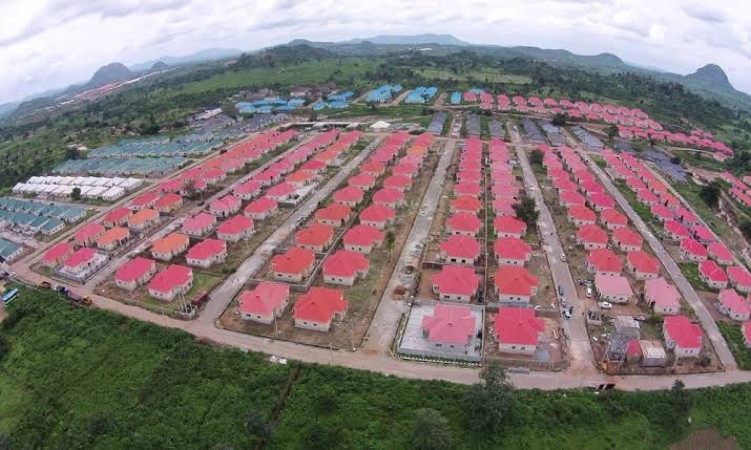The Federal Government’s low budgetary allocation to the housing sector and the high cost of accessing mortgages might make it difficult for the country to bridge the over 17 million housing deficit, experts have said.
Advertisement
The experts who spoke to THE WHISTLER in separate interviews said that the current structure of funding the housing sector in the country is deficient.
Those that spoke to this Newspaper are the Dean, Faculty of Social Science, Kaduna State University, Aminu Usman, and the General Manager, Human and Business Relation of Jedo Investment Company Ltd, Anthony Onwuma.
Nigeria’s housing deficit is over 17 million according to a Report by Price Waterhouse Coopers and the government has said that housing is one of its priority areas of intervention.
Nigeria’s budget for the Family Homes Fund in 2020 was N20bn, while the Central Bank of Nigeria had in the same year rolled out its home building plans for 300,000 low income earners.
Advertisement
The budget for the apex bank’s housing loan is worth N200bn to be disbursed through the Family Homes Fund Ltd.
President Muhammadu Buhari, had allocated N20bn for the Family Homes Fund in the 2020 and 2021 fiscal periods.
The allocation, according to the Federal Government is aimed at reducing housing gap across the 36 States and the Federal Capital Territory.
But Usman said for the government to be able to effectively tackle the housing deficit, there is need to attract private sector funds into the sector
He said with the Federal Government currently battling revenue shortfall and with the negative impact of the Coronavirus pandemic on the economy, the resources to address the housing gap might be limited.
Advertisement
He said, “The current structure of cost of funding and the current structure of housing provision in this country, the government may not be able to actually provide the number of houses to fill in the housing gap.”
By 2024, the government targets to build 500,000 homes through the Family Homes Fund, from the 17 million deficit.
The country needs an annual spending of at least N59.5trn to cover the housing deficits by 2024.
Nigeria also requires about 700,000 new houses yearly, as against the about 100,000 houses that are being built on yearly basis.
The National Bureau of Statistics had said a total of N77.6bn had been disbursed through mortgages by financial institutions.
In 2017, mortgages by the financial institutions was N19.8bn, while it jumped in 2018 to N32.1bn. But in 2019, loans for mortgages by financial institutions dropped by 19.9 pre cent to N25.68bn.
Advertisement
About 445,134 individuals haf registered for the Federal Government’s Family Homes Fund between 2017 and 2018, while organisational membership had grown to 1,541 during the same period.
Over the years Nigeria’s mortgage loans and advances contribute only 0.5 per cent of Nigeria’s Gross Domestic Product, while the real sector account for less than 0.5 per cent of GDP.
The expert said ” If you have such gap, you need to attract private sector funds into the housing industry. The biggest problem with Nigeria is our earning capacity.
“People’s income is so small that they cannot survive a meaningful mortgage that is why this gap will continue and that is why government needs to intervene in so many ways in creating social housing that are very affordable to majority of the people.
“The cost of funding in Nigeria where you cannot borrow at rate below two digits is another problem. Government is making efforts to create funds, but those funds can only create environments where the private sector can be able to come in and build more houses.”
He said the cost of getting a mortgage need to be lowered so that houses will be made affordable for ordinary Nigerians.
“I am sure government cannot solve this problem on its own, so I think the private sector needs to be encouraged to actually come in and then build more affordable houses,” he added.
The General Manager, Human and Business Relation of Jedo Investment Company Ltd, Anthony Onwuma said the government need to also do more in engaging in the area of Public, Private, Partnership arrangement.
He said with this the government would be able to create more financial institutions that will create mortgages that are affordable.
He said compared to the United States which had 15,000 mortgage institutions, Nigeria only has about four major institutions that provides affordable mortgage.



